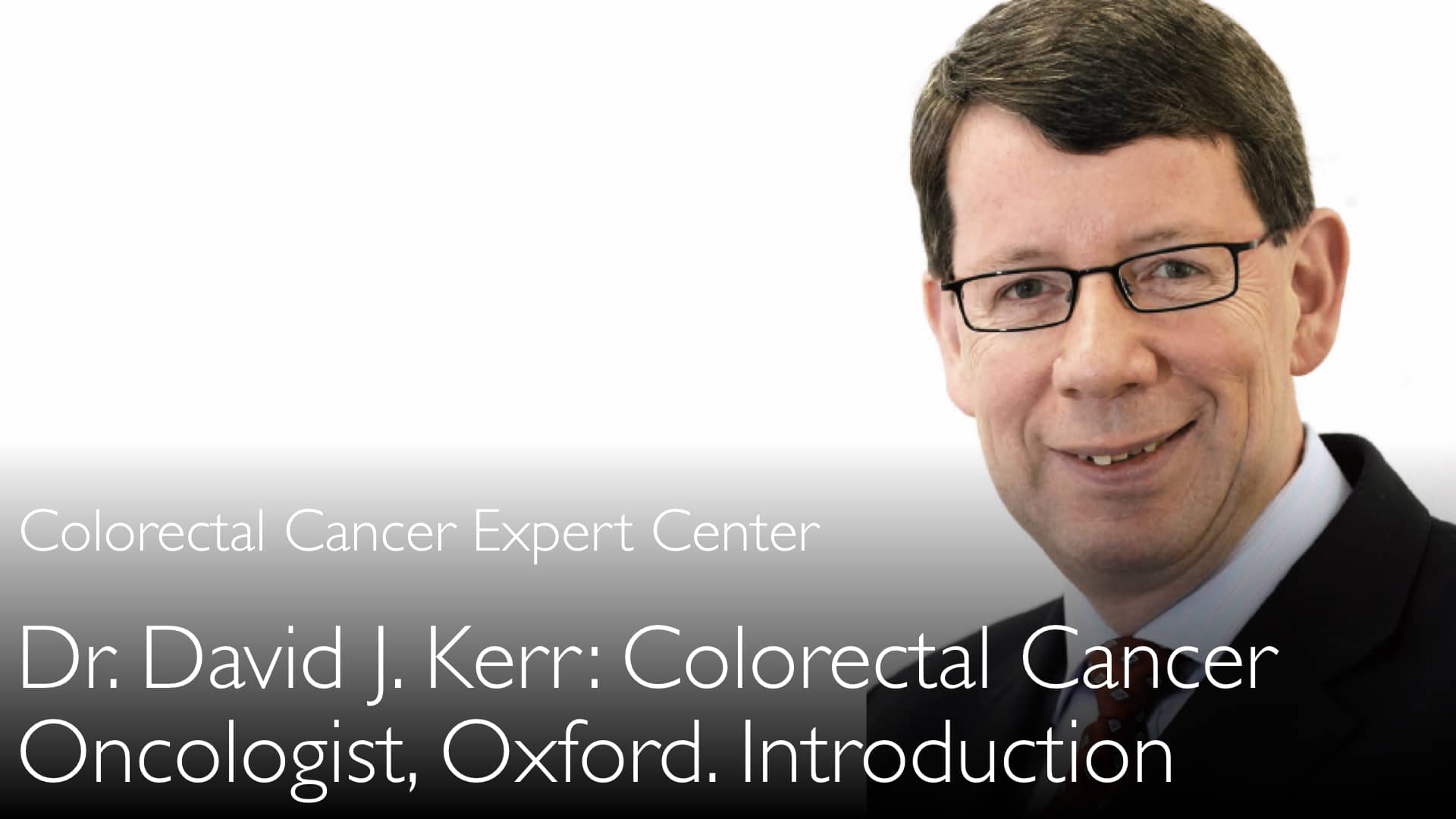Le Dr David Kerr, MD, expert de renom en cancer colorectal, explique que l'avenir du traitement repose sur une adoption plus large des marqueurs moléculaires pronostiques, une meilleure sélection des patients pour la chimiothérapie et le développement de médicaments ciblant des voies comme la signalisation WNT. Il souligne le rôle crucial d’une approche multidisciplinaire pour les décisions diagnostiques complexes et le traitement agressif des métastases par chirurgie et ablation. Il met également en lumière les défis actuels, tels que la résistance tumorale à l’immunothérapie, et le besoin urgent de nouvelles thérapeutiques.
Avenir du Traitement du Cancer Colorectal : Médecine de Précision et Nouvelles Thérapies
Aller à la section
- Marqueurs Pronostiques Moléculaires dans le Cancer Colorectal
- Défis de l'Immunothérapie dans le Cancer du Côlon
- Nouvelles Voies Médicamenteuses : WNT et Épigénétique
- Optimisation des Chimiothérapies et Médicaments Existants
- Techniques d'Imagerie Avancées pour le Diagnostic
- Approche Multidisciplinaire de la Prise en Charge
- Horizon Thérapeutique à 5 à 10 Ans
Marqueurs Pronostiques Moléculaires dans le Cancer Colorectal
La médecine de précision progresse dans le cancer colorectal grâce à l’adoption croissante des marqueurs pronostiques moléculaires. Selon le Dr David Kerr, MD, le profilage génomique des tumeurs deviendra une pratique courante. Ces marqueurs sont essentiels pour mieux sélectionner les patients, notamment pour la chimiothérapie adjuvante du cancer du côlon et du rectum.
Cette approche utilise une biologie moléculaire avancée pour adapter les chimiothérapies existantes aux patients qui en tireront le plus de bénéfices. L’intégration de ces modèles sophistiqués est une tendance majeure pour personnaliser le traitement et améliorer les résultats.
Défis de l'Immunothérapie dans le Cancer du Côlon
Le cancer colorectal s’est révélé difficile à traiter par modulation des points de contrôle immunitaires. Le Dr David Kerr, MD, explique que si l’immunothérapie suscite de l’enthousiasme pour des cancers comme le mélanome ou le poumon, elle n’est efficace que chez une petite sous-population de patients atteints de tumeurs colorectales. La majorité de ces tumeurs sont immunodéviantes et résistantes à ce type de traitement.
Cette résistance complique la prise en charge et souligne le besoin urgent de nouveaux médicaments capables de surmonter cet obstacle biologique.
Nouvelles Voies Médicamenteuses : WNT et Épigénétique
De nouveaux candidats-médicaments ciblant des voies moléculaires spécifiques représentent une avancée prometteuse. Le Dr David Kerr, MD, met en avant des recherches encourageantes sur la voie de signalisation WNT et les enzymes impliquées dans le contrôle épigénétique des tumeurs. Il prévoit l’émergence de nouveaux traitements ciblant ces mécanismes dans les cinq prochaines années.
Ces travaux sur la biologie fondamentale du cancer colorectal visent à identifier de nouvelles cibles thérapeutiques et à prévenir les récidives grâce à une meilleure compréhension du microenvironnement tumoral.
Optimisation des Chimiothérapies et Médicaments Existants
Apprendre à mieux utiliser les médicaments existants est une stratégie précieuse pour améliorer le traitement du cancer colorectal. Le Dr David Kerr, MD, souligne le potentiel de l’aspirine associée à des marqueurs moléculaires. Il s’agit d’optimiser l’usage des chimiothérapies conventionnelles grâce à une sélection plus fine des patients.
L’objectif est de maximiser l’efficacité des traitements actuels tout en poursuivant la recherche de nouveaux agents, afin d’offrir aux patients une médecine personnalisée de pointe.
Techniques d'Imagerie Avancées pour le Diagnostic
Une imagerie performante est cruciale pour traiter de manière agressive le cancer colorectal métastatique. Le Dr David Kerr, MD, note que la TEP-TDM sera de plus en plus utilisée pour stadifier la maladie et évaluer la réponse au traitement. Cette imagerie avancée facilite le recours à des procédures invasives comme l’ablation par radiofréquence ou la chirurgie des métastases, en permettant une meilleure sélection des patients.
Les techniques de radiothérapie ont également progressé, permettant une irradiation plus précise et sûre, même si le Dr Kerr estime que les bénéfices restent marginaux comparés à d’autres avancées.
Approche Multidisciplinaire de la Prise en Charge
Une approche multidisciplinaire est essentielle pour prendre les meilleures décisions diagnostiques et thérapeutiques. Le Dr David Kerr, MD, souligne que cette collaboration est primordiale dans la prise en charge des cancers colorectaux métastatiques complexes. Elle réunit chirurgiens, oncologues, radiothérapeutes et experts du diagnostic pour élaborer un plan de traitement complet.
Ce modèle garantit une sélection rigoureuse des patients pour les traitements agressifs et une coordination optimale des soins, caractéristique des centres d’excellence en cancérologie colorectal.
Horizon Thérapeutique à 5 à 10 Ans
L’avenir du traitement du cancer colorectal à moyen terme repose sur une combinaison de découvertes biologiques et d’applications cliniques. Le Dr David Kerr, MD, évoque une évolution du traitement, notant que si peu de nouveaux médicaments sont apparus ces dix dernières années, le domaine est en passe de changer. Les défis majeurs restent de surmonter la résistance thérapeutique et de développer de nouveaux agents efficaces.
Le Dr Anton Titov, MD, conclut que ces avancées nécessiteront une coopération internationale étendue, influençant non seulement les découvertes thérapeutiques, mais aussi les politiques de santé et l’organisation des soins pour les patients du monde entier.
Transcription Complète
Dr. Anton Titov, MD: Quel est l’avenir du traitement du cancer colorectal ? De nombreuses avancées sont en cours : thérapies ciblées, diagnostics et médecine de précision.
Dr. Anton Titov, MD: Comment voyez-vous évoluer le traitement du cancer du côlon dans les 5 à 10 prochaines années ? Quels sont les principaux défis pour la thérapie du cancer du côlon et du rectum ? Où situeriez-vous les progrès les plus significatifs pour les patients ?
Dr. David Kerr, MD: Le cancer colorectal est thérapeutiquement complexe. La chimiothérapie adjuvante, par exemple, n’a pas bénéficié de nouveaux médicaments depuis 10 ou 12 ans. La majorité des tumeurs colorectales résistent à la modulation immunitaire. Contrairement au poumon, au mélanome ou au rein, où l’immunothérapie donne des résultats, seules quelques sous-populations de patients colorectal y répondent. La plupart des tumeurs sont immunodéviantes, ce qui rend la situation difficile.
Nous allons vers une modélisation plus sophistiquée des marqueurs moléculaires pronostiques. Le profilage génomique des tumeurs se généralisera, aidant à la sélection des patients pour la chimiothérapie adjuvante.
Certaines voies moléculaires, comme la signalisation WNT ou le contrôle épigénétique, sont très prometteuses. Dans cinq ans, nous devrions voir de nouveaux médicaments ciblant ces mécanismes.
Il y a aussi un potentiel à mieux utiliser les anciens médicaments, comme l’aspirine associée à des marqueurs moléculaires. Une biologie moléculaire intelligente nous permettra d’adapter les chimiothérapies existantes aux patients qui en bénéficieront le plus.
L’imagerie va également progresser, avec une utilisation accrue de la TEP-TDM. Nous traitons déjà le cancer métastatique de manière plus agressive en équipe multidisciplinaire, avec ablation par radiofréquence et chirurgie. Une meilleure imagerie et de meilleurs marqueurs nous aideront à sélectionner les patients pour ces interventions invasives.
La radiothérapie s’est améliorée, permettant une irradiation plus précise, mais les bénéfices restent modestes. Nous devons poursuivre les efforts dans ce domaine.
Dr. Anton Titov, MD: Une meilleure compréhension de la biologie tumorale ouvrira de nouvelles cibles thérapeutiques et aidera à prévenir les récidives.
Dr. David Kerr, MD: L’approche multidisciplinaire est cruciale pour de meilleures décisions et la sélection des patients. Mais nous avons un besoin urgent de nouveaux médicaments. Pour l’instant, je n’en vois pas à l’horizon.
Dr. Anton Titov, MD: C’est un travail capital, qui exigera une coopération internationale. Merci pour cette discussion stimulante. Vos recherches avec vos collègues internationaux sont passionnantes.
Votre travail sur les aspects de santé publique est particulièrement important, car le succès de la thérapie dépend autant des politiques de santé et de l’organisation des soins que des découvertes thérapeutiques. Cela concerne tous les patients atteints de cancer colorectal dans le monde.
Merci beaucoup. J’espère que nous pourrons reparler de ces avancées à l’avenir !
Dr. David Kerr, MD: Merci à vous ! Les meilleures options de traitement incluront un profilage tumoral précis, une chimiothérapie adaptée aux mutations, et une approche multidisciplinaire.





